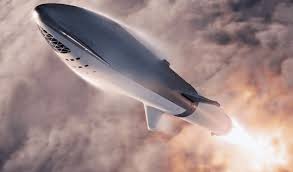
Breaking News
Importing Poverty into America: Devolving Our Nation into Stupid
 Grand Theft World Podcast 273 | Goys 'R U.S. with Guest Rob Dew
Grand Theft World Podcast 273 | Goys 'R U.S. with Guest Rob Dew
 Anchorage was the Receipt: Europe is Paying the Price… and Knows it.
Anchorage was the Receipt: Europe is Paying the Price… and Knows it.
 The Slow Epstein Earthquake: The Rupture Between the People and the Elites
The Slow Epstein Earthquake: The Rupture Between the People and the Elites
Top Tech News
 Drone-launching underwater drone hitches a ride on ship and sub hulls
Drone-launching underwater drone hitches a ride on ship and sub hulls
 Humanoid Robots Get "Brains" As Dual-Use Fears Mount
Humanoid Robots Get "Brains" As Dual-Use Fears Mount
 SpaceX Authorized to Increase High Speed Internet Download Speeds 5X Through 2026
SpaceX Authorized to Increase High Speed Internet Download Speeds 5X Through 2026
 Space AI is the Key to the Technological Singularity
Space AI is the Key to the Technological Singularity
 Velocitor X-1 eVTOL could be beating the traffic in just a year
Velocitor X-1 eVTOL could be beating the traffic in just a year
 Starlink smasher? China claims world's best high-powered microwave weapon
Starlink smasher? China claims world's best high-powered microwave weapon
 Wood scraps turn 'useless' desert sand into concrete
Wood scraps turn 'useless' desert sand into concrete
 Let's Do a Detailed Review of Zorin -- Is This Good for Ex-Windows Users?
Let's Do a Detailed Review of Zorin -- Is This Good for Ex-Windows Users?
 The World's First Sodium-Ion Battery EV Is A Winter Range Monster
The World's First Sodium-Ion Battery EV Is A Winter Range Monster
 China's CATL 5C Battery Breakthrough will Make Most Combustion Engine Vehicles OBSOLETE
China's CATL 5C Battery Breakthrough will Make Most Combustion Engine Vehicles OBSOLETE
The Next Fifteen Years With SpaceX, Mars and Space

The success of SpaceX Falcon Heavy on its first launch was not just luck. Although this will be confirmed in 2019 and 2020 based upon what happens with about five planned Falcon Heavy launches.
Before the Falcon Heavy flight Musk predicted a 50 percent to 70 percent chance of success because of concerns over the difficulty predicting how the vehicle would respond to extreme aerodynamic stresses and vibrations from the clustered engines.
SpaceX has a 96.88% launch success rate (62 out of 64) with the Falcon 9. This launch success is with five major design changes for the Falcon 9 rocket.
There has been 84% success on landing first stages (31 out of 37). All landings in 2017 and 2018 have been successful other than the loss of the center stage for the Falcon Heavy.
There has been 100% success on re-flights (17 out of 17) of boosters.
SpaceX is learning more about accurately simulating the performance of rockets prior to launch. They are also understanding how to change rockets and still have successful launches.
I would put the over and under for the number of launch failures during Starship Super Heavy testing at two. It is 50-50 or better odds for two or fewer launches to fail.



